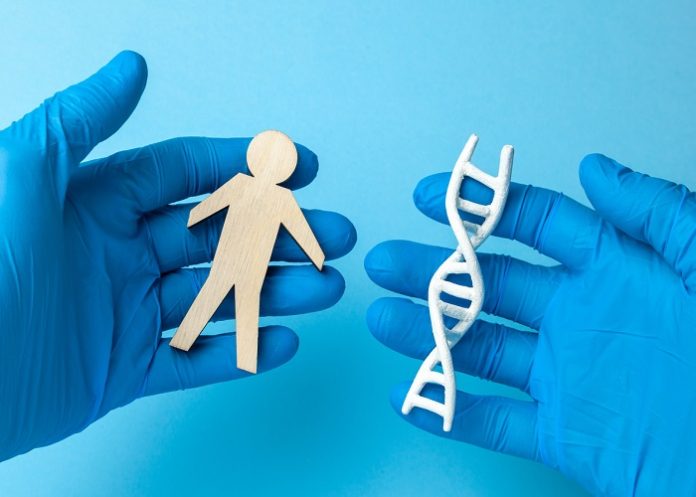Scientists have warned that men carrying two copies of a common genetic variant face double the risk of dementia, according to their findings from the ASPREE trial.
The study, published in Neurology, tapped into data from the large-scale ASPREE trial (ASPirin in Reducing Events in the Elderly) to explore the link between dementia and variants in the haemochromatosis (HFE) gene. This gene plays a crucial role in regulating iron levels in the body, but certain changes in it could have much bigger consequences for brain health.
Professor John Olynyk – from Perth’s Curtin Medical School, in Australia, and co-author of the study – said that about one in three people carry a single copy of the variant known as H63D.
But while common, it is the smaller group, around one in 36 people, who carry two copies that face a significantly higher risk.
“Having just one copy of this gene variant does not affect someone’s health or increase their risk of dementia. However, having two copies of the variant more than doubled the risk of dementia in men – but not in women,” he said.
“While the genetic variant itself cannot be changed, the brain pathways which it affects, leading to the damage that causes dementia, could potentially be treated if we understood more about it.”
Gender differences, and future directions
Olynyk said further research was needed to investigate why this genetic variant increased the risk of dementia for males but not females.
“The HFE gene is routinely tested for in most Western countries, including Australia, when assessing people for haemochromatosis, which causes the body to absorb too much iron. Our findings suggest that perhaps this testing could be offered to men more broadly.
“While the HFE gene is critical for controlling iron levels in the body, we found no direct link between iron levels in the blood and increased dementia risk in affected men.
“This points to other mechanisms at play, possibly involving the increased risk of brain injury from inflammation and cell damage in the body.”
Implications for personalised medicine
Co-author Professor Paul Lacaze, from Monash University, said the findings could help improve outcomes for people at risk of developing dementia.
“More than 400 000 Australians have dementia, with around a third of those being men. Understanding why men with the double H63D variant are at higher risk could pave the way for more personalised approaches to prevention and treatment,” he said.
The ASPREE trial was a double-blind, randomised, placebo-controlled trial of daily low-aspirin in 19 114 healthy older people in Australia and the USA. Primarily undertaken to evaluate the risks versus benefits of daily low-dose aspirin in this cohort, it created a treasure trove of healthy ageing data that has underpinned a wealth of research studies.
Study details
Haemochromatosis Genotypes and Incident Dementia in a Prospective Study of Older Adults
Chenglong Yu, Martin Delatycki, Sultana Monira Hussain, John James McNeil, Paul Lacaze and John Olynyk.
Published in Neurology on 29 May 2025.
Abstract
Background and Objectives
Variants in the homeostatic iron regulator (HFE) gene are prevalent among individuals of European ancestry and have been linked to an increased risk of dementia. This study aimed to evaluate the effects of HFE p.Cys282Tyr and p.His63Asp variants on serum ferritin levels and the incidence of dementia in a cohort of initially healthy older adults.
Method
This prospective longitudinal study used data from the Aspirin in Reducing Events in the Elderly trial. Participants had no history of cardiovascular disease, dementia, or cognitive decline at enrolment. Genotyping for HFE p.Cys282Tyr and p.His63Asp variants was conducted using microarrays, and baseline serum ferritin concentrations were measured in peripheral blood samples. Dementia diagnoses were confirmed by an adjudication committee over a median follow-up of 6.4 years. Associations were evaluated using Cox proportional hazards models adjusted for related covariates.
Results
The study included 12,174 unrelated, healthy participants of European ancestry aged 70 years or older, comprising 5,583 men (45.9%) and 6,591 women (54.1%). The median age was 73.7 years (interquartile range [IQR]: 71.6–76.9) for men and 73.9 years (IQR: 71.7–77.5) for women. Compared with the wild-type group, men with p.Cys282Tyr+/+ (p = 0.048) and p.Cys282Tyr+/p.His63Asp + genotypes (p < 0.001) had significantly higher baseline ferritin levels. Women with p.His63Asp+/+ (p = 0.015) and p.Cys282Tyr+/p.His63Asp+ (p < 0.001) genotypes also exhibited elevated ferritin levels. No significant association was observed between baseline serum ferritin levels and dementia risk. However, men with p.His63Asp+/+ genotype had a significantly higher risk of incident dementia (adjusted hazard ratio = 2.39, 95% CI 1.25–4.57, p = 0.009) compared with those without HFE variations. This association was not observed in women.
Discussion
Among initially healthy older adults, HFE p.His63Asp homozygosity was associated with a higher risk of incident dementia in men but not women. These findings highlight a potential sex-specific genetic risk factor for dementia and warrant further research into the underlying mechanisms linking p.His63Asp and dementia.
See more from MedicalBrief archives:
Age, sex, hormones linked to dementia biomarkers – German study
NSAIDs may lower dementia risk, large study finds

